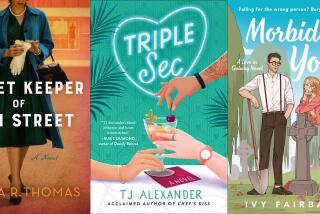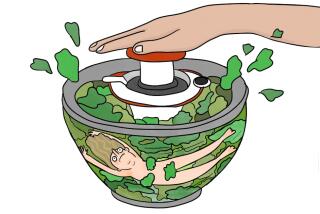Valentine’s Day poetry for intense and fraught passions
This is not a light and easy Valentine’s Day book recommendation.
The Russian poet Vera Pavlova is a fiercely sensual writer.
Her collection, “If There Is Something to Desire: One Hundred Poems,” is not the sort of book you buy for someone you’ve just met. No, it’s for that person you’ve broken up with and gotten back together with three or four times times. For the sort of relationship where you’ve loved someone and also hurt and screamed at them, and they’ve hurt you, and yet you always end up back with them because you know they are who you were meant to be with.
In poem No. 9 of “If There Is Something to Desire,” Pavlova captures in just 10 words the complex feelings of a person who’s left a relationship that may not be quite ready to end.
I broke your heart.
Now barefoot
I tread on shards.
Pavlova, 50, said in an interview that she began writing poems in the maternity ward, at age 20, after the birth of her first child. In “If There Is Something to Desire,” she takes on themes of desire, love and yearning in all the cycles of life. “I shall bury you/you will bury me,” she writes in one. In another she imagines her parents’ coupling: “It was scary for them to make me./It was weird for them to make me.”
In Russia, Pavlova is a bestselling writer, though “If There Is Something to Desire” is her only major collection in English and was recently released by Knopf in paperback. Its poems speak of current and imagined lovers, including one who seems only to exist in a dreamspace: “Fell in love in sleep;/woke up in tears.” In No. 11, the poet speaks to a lover with whom she’s shared a sweet misery.
Let us touch each other
while we still have hands,
palms, forearms, elbows ...
Let us love each other for misery,
let us torture each other,
mangle, maim,
to remember better,
to part with less pain.
In No. 40, Pavlova calls sex “the sign language of the deaf and mute.” In an interview, she said it was through erotic poetry that she found her voice.
“All real poems are erotic in their essence,” she said. “For me, inspiration is an act of lovemaking with language. I can always tell when language wants me. And I never say ‘no’ to it. For me, it is always good.”
ALSO:
A compelling memoir of Arab Spring
Maggie Estep, poet and spoken word artist, dies at 50
‘The Hindus’ pulled by Penguin Books India, prompting outrage
hector.tobar@latimes.com
More to Read
Sign up for our Book Club newsletter
Get the latest news, events and more from the Los Angeles Times Book Club, and help us get L.A. reading and talking.
You may occasionally receive promotional content from the Los Angeles Times.







